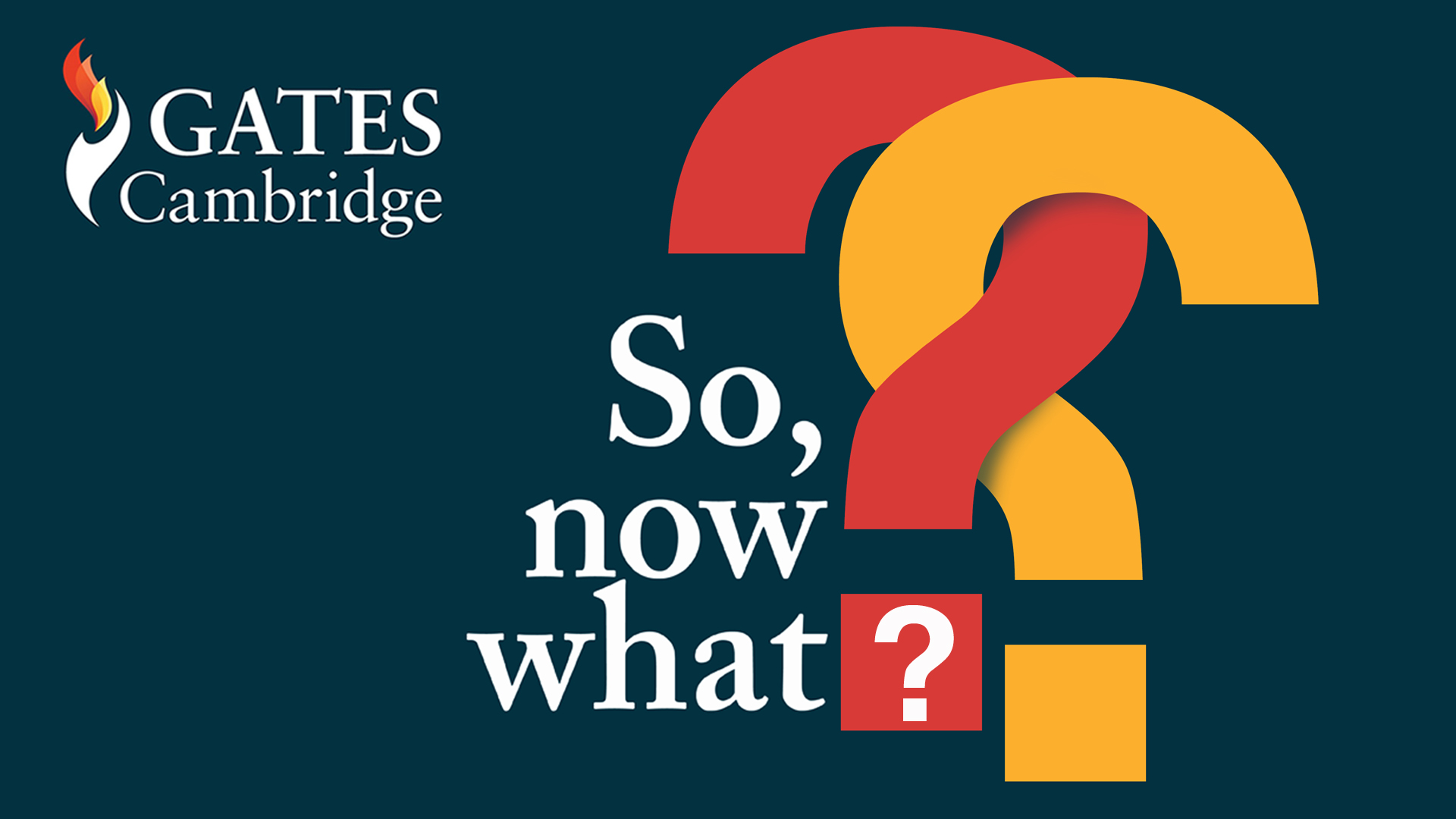
Three Gates Cambridge Scholars - Robyn Scott, Chris Tooley and Julie Pham - discuss the kind of leadership we need in disrupted times
You raise your game when you are with people who are fighting big important fights that matter.
Robyn Scott
Three Gates Cambridge Scholars who are leaders in community work, government and business discuss what kind of leadership we need in today’s turbulent world in the sixth episode of the So, now what? podcast.
Robyn Scott [2004], Chris Tooley [2002] and Julie [Hoai] Pham [2001] discussed leadership with presenter Catherine Galloway in the sixth of eight episodes in season two of the Gates Cambridge podcast.
Julie Pham is the founder and CEO of CuriosityBased, an organisational development firm based in Seattle and author of No. 1 Amazon Bestseller “7 Forms of Respect: A Guide to Transforming Your Communication and Relationships at Work”.
Robyn Scott is co-founder and CEO of Apolitical, a global learning platform for government. She previously co-founded OneLeap [with fellow Gates Cambridge Scholar Hamish Forsyth], an executive education company, and several Southern African social enterprises teaching coding and other income generation skills to vulnerable women, youth, and prisoners. Her first book, Twenty Chickens for a Saddle, is an acclaimed memoir about growing up in Botswana against the AIDS epidemic.
Chris Tooley is CEO of Te Puna Ora o Mataatua, a health and social services provider serving the Eastern Bay of Plenty in New Zealand and has served as chief ministerial advisor for the Maori Affairs portfolio in the New Zealand government.
The speakers began by discussing the current moment, which Scott said was characterised by ‘a recession of moral leadership’. Saying that ‘molten’ times could offer opportunity for positive change, she said: “If we don’t reclaim more moral standing in leadership at this time of tremendous flux it could be very dangerous. There is a lot of opportunity, but at the same time a lot of jeopardy.” Tooley also talked about a terrifying moment which was also essential to overthrow existing power structures.
Speakers discussed on the one hand the need for a few leaders to be brave as well as the importance of collective decentralised leadership where senior leaders are more facilitators and coordinators than top-down rule makers expected to lay down the law.
Tooley talked about the role he played in organising the response to the Covid pandemic in New Zealand and how it had fast tracked locally based innovation that got things done. Pham discussed the importance of self-leadership and listening to each other to rebuild community as well as the ability to understand that multiple truths can exist.
Scott spoke of her experience of working with the Group of Hope, maximum security prisoners in South Africa who had come together to help AIDS orphans and had changed their own and the children’s lives as a result. She referred to Nelson Mandela and how in prison he honed his powers of listening and understanding the lives of others.
Transformative leadership
Each speaker was asked what motivated them as leaders. Scott said she couldn’t understand why anyone would question why she was a social entrepreneur as opposed to a normal entrepreneur, given it gave her the ability to make money AND to help others. Tooley spoke about his path from working in the New Zealand Parliament to community work where he felt he had more transformative power.
The episode ended with an appreciation of small one-to-one acts of leadership and a call to build new local and regional leadership structures that can be scaled. Scott finished by talking about her experience as a member of the Gates Cambridge community. Urging people to spend time with people who give them moral courage and giving the example of Bill Gates’ decision to speed up the giving away of his money to improve the lives of others, she said: “You raise your game when you are with people who are fighting big important fights that matter.”
The seventh episode of the podcast will be available on the last Tuesday of July and asks whether women’s equality is going backwards and what we can do about it. The speakers are Reetika Subramanian, Christine Carpenter and Will McInerney.
*Listen to the new episode here.












